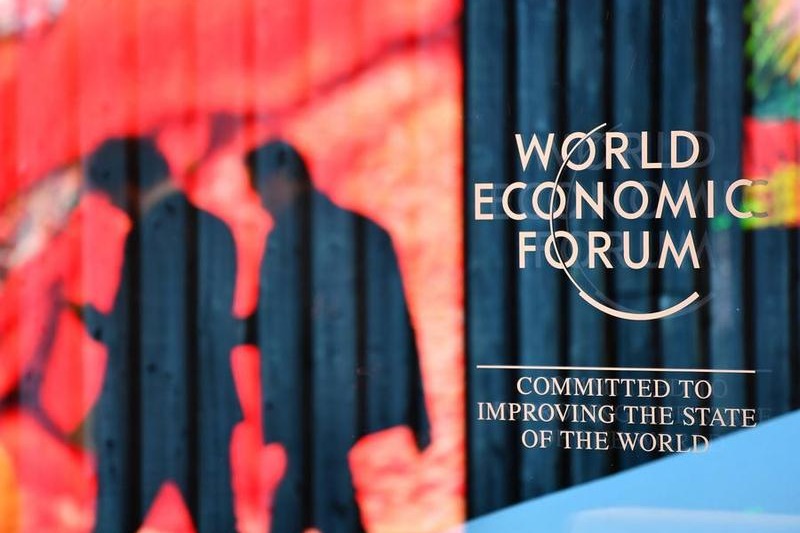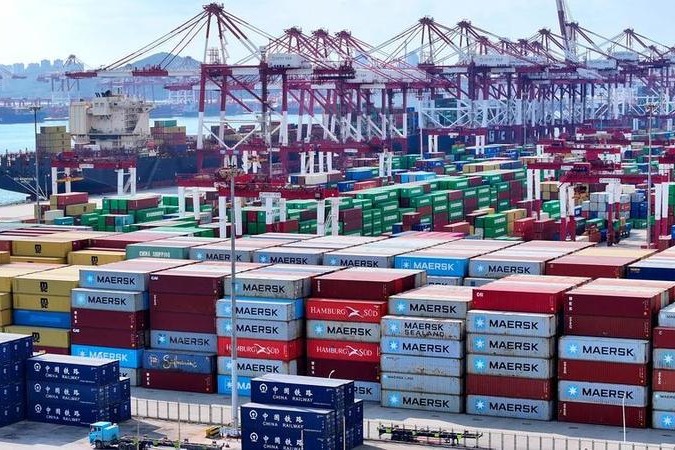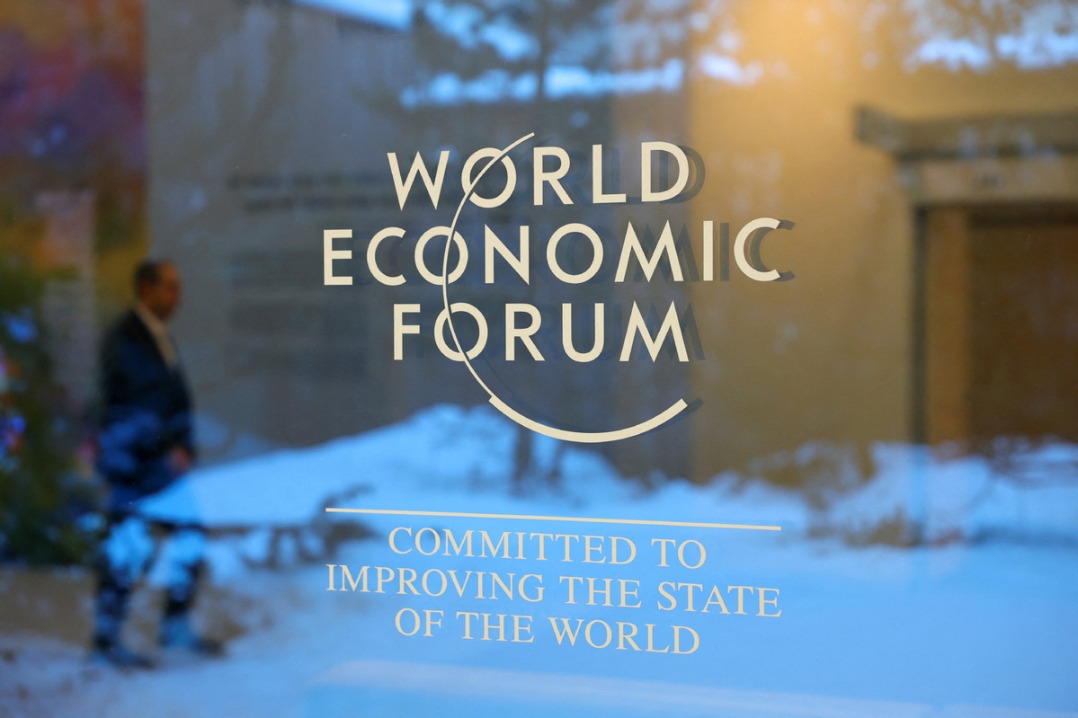China a key backer of UN-centered system for peaceful development


The commemoration of the 80th anniversary of the United Nations this year is an apt time to reflect on the crucial role China has played in maintaining global peace and security, one of the three pillars on which the UN was founded.
In the intricate tapestry of global affairs, peace stands as the most cherished yet fragile thread binding the world together. As the world grapples with a myriad of challenges, from regional conflicts to global security threats, the role of a stabilizing factor becomes paramount. China, with its rich historical legacy, burgeoning economic prowess and commitment to peaceful development, has emerged as a pivotal promoter of global peace.
China has always emphasized the importance of peace, harmony and unity, which has not only shaped its domestic social relations but also determined its approach to the outside world. The Chinese philosophy of harmony without uniformity advocates for the coexistence of diverse cultures, political systems and development models, and opposes the imposition of one country's values or ideology on others. This philosophical underpinning has allowed China to engage with a wide array of countries, from the developed Western countries to the emerging market economies in Asia, Africa and Latin America.
The pursuit of peaceful development is a cornerstone of China's foreign policy since the founding of the People's Republic of China in 1949. Equally important, China also adheres to the principles of independence, self-reliance and peaceful coexistence.
The China-proposed Five Principles of Peaceful Coexistence have become the basic norms governing international relations, and helped countries resolve their disputes and engage in cooperation in a peaceful manner.
On the other hand, China's Global Security Initiative represents a visionary approach to addressing the complex global security landscape. Launched with the aim of promoting common, comprehensive, cooperative and sustainable security, the initiative offers a new paradigm that goes beyond traditional security concepts.
By advocating dialogue, cooperation and the building of partnerships, the GSI encourages countries to work together to identify and address the root causes of conflicts, rather than simply reacting to crises. The initiative is highly congruent with the UN Charter; it provides a modern framework for addressing the complex security challenges facing the world.
China is the only one among the five nuclear-weapons states that has pledged no-first-use of nuclear weapons, which shows it is committed to reducing the risk of a nuclear war and promoting global peace.
China upholds multilateralism, as it believes the world order should be centered on the UN and disputes resolved through diplomatic means and dialogue — and opposes hegemonism, power politics, Cold War mentality and ideological confrontation.
China has played a significant role in mediating and resolving conflicts around the world. Its approach to conflict resolution is based on the principles of respect for other countries' sovereignty, non-interference in the internal affairs of other countries, and the pursuit of peaceful solutions.
Also, China has been calling for the peaceful resolution of the Israel-Palestine conflict and the implementation of the two-state solution to resolve their disputes once and for all. More important, it has mediated a rapprochement between Iran and Saudi Arabia, helping them re-establish diplomatic relations after seven years.
On the Korean Peninsula issue, China has been a steadfast advocate for denuclearization and peace, working tirelessly to bring the parties together for dialogue, and hosting multiple rounds of Six-Party Talks aimed at resolving the denuclearization issue.
As for the Russia-Ukraine conflict, China has adopted an impartial stance, aiming at creating the right conditions for Moscow and Kyiv to agree to a lasting peace deal. China released a position paper on the political settlement of the Ukraine crisis in February 2023, outlining 12 detailed steps toward resolution of the crisis.
Moreover, since joining the UN peacekeeping mission in 1990, China has dispatched more than 50,000 personnel on 25 missions, making it the second-largest financial contributor and the largest personnel contributor to UN peacekeeping among the five permanent members of the UN Security Council. Its involvement transcends traditional peacekeeping operations, as it also focuses on fostering sustainable peace through infrastructure development and capacity-building. For instance, in war-torn South Sudan, Chinese engineering battalions have built more than 1,300 kilometers of roads and 100 bridges, reconnecting communities and enabling humanitarian access. These efforts reflect China's belief that peace, instead of being imposed, must be restored through tangible improvements in daily life.
China believes in multilateralism and inclusive governance, and has adopted a"3D" approach — diplomacy, development and defense — to promote peace, which is evident in its support for the UN's peace-building architecture, such as the Peacebuilding Commission, to which China has pledged $10 million.
China's contributions to global security extend beyond conflict resolution, because it recognizes that in today's interconnected world, no country alone can safeguard security in a foolproof way. That's why it has been working with other countries to address these challenges. Not to mention it has been part of the global efforts to combat transnational threats such as terrorism and piracy.
In the fight against terrorism, China has adopted an approach that addresses both the symptoms and root causes of extremism, while supporting global counter-terrorism efforts by sharing intelligence, providing humanitarian aid to affected regions, and promoting dialogue among different countries, cultures and religions.
Besides, China has deployed its naval forces to the Gulf of Aden and the waters off Somalia's coast as part of its global anti-piracy mission. The forces safeguard not only Chinese shipping interests but also the overall security of global maritime trade routes.
And given the opportunities and challenges created by artificial intelligence, China has called for strengthening global AI governance. In 2023, it introduced the "Global AI Governance Initiative", emphasizing the importance of ensuring AI development is human-centric and it is used for the good of humanity.
Building on this, the 78th UN General Assembly unanimously adopted China's resolution on enhancing international cooperation on AI capacity-building in July 2024, with more than 140 countries co-sponsoring the resolution while urging the UN to spearhead the AI global governance mechanism.
"Upholding the path of peaceful development" is enshrined in China's Constitution, reflecting the country's commitment to the international community. And since making efforts to restore lasting global peace is key to building a community with a shared future for mankind, China will work with all countries to promote peaceful development and win-win cooperation.
The author is a board member of the United Nations Association of China.
The views don't necessarily reflect those of China Daily.
If you have a specific expertise, or would like to share your thought about our stories, then send us your writings at opinion@chinadaily.com.cn, and comment@chinadaily.com.cn.


































